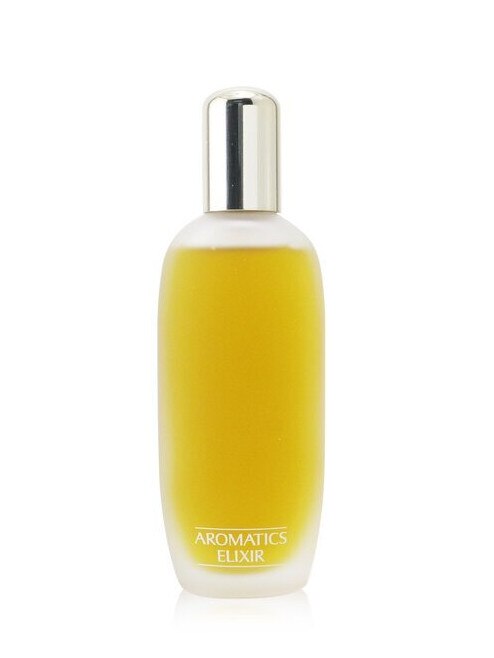Here’s why smells trigger such specific memories
The alchemy of perfume has long been linked to memory, in all its peculiarities. But what makes the pull of certain smells so potent?

In the back of my vanity lives a perfume I’ll never wear. Which is a strange predicament for someone who lives within the world of beauty, who writes about products and brands, and whose perfume collection is wide and (mostly) functional. I have sweet floral scents for spring days; deeper, muskier ones I gravitate to for everyday; local perfumes made by Australian creatives; scents intended for special occasions. Then, tucked behind the Tom Fords and Guccis, is a simple glass bottle of Clinique’s Aromatics Elixir.
It was my mother’s perfume. Growing up, my siblings and I called it her “airport perfume”.
In the tiny, dusty town of Broome where we lived, perfume wasn’t an everyday necessity for a busy mother of four, so it was only worn on special occasions. Dinner out, parties, weddings and trips to the airport. Even when she wasn’t travelling anywhere herself, sure enough, a hug on departure would always be accompanied by the scent of Aromatics Elixir, as if the very idea of travelling away from our tiny town was worth the spritz.
One lonely Christmas, living on my own away from my family, my sister gifted me a coat she had spritzed with Mum’s airport perfume as a way to stop me from feeling homesick. After a week of it wafting through my wardrobe, my heart tight, stomach roiling, I shoved it into a plastic bag and hefted it into a cupboard, out of reach.
Smell is funny like that. Some reactions are biological, embedded into the brain – the way your mouth waters when you smell something delicious, or how you recoil when something is unpleasant. But when we pair smells with memories, it’s not so straightforward. In the way Aromatics Elixir – a beautiful scent of vetiver and oakmoss, patchouli and ylang ylang, intense and earthy, could make me heavy-hearted – memories can live within smells, just like they can live within our minds.
This, according to Dr Megan Papesh, associate professor of psychology at New Mexico State University, is due to the way our brain registers smell in the first place.

“Olfactory receptor cells embedded in the top of the nasal cavity are the first to register smell information. After they register these sensations, the cells send messages to the brain via the olfactory bulb. The olfactory bulb then transmits information to the cortex along multiple pathways. One of those pathways goes to the amygdala, which is often thought of as the hub for emotional processing and integration. The amygdala is also closely connected to the hippocampus, which is involved in associative learning (learning to link two or more things, like a scent with a particular face and emotion),” says Papesh.
“Essentially, when the scent information and the emotional context are active at the same time, those cells are firing together, which increases their connection strength. If one of those collections of cells fires (like when we smell something), they have an increased chance of activating the cells that they are connected to (the emotional memory).”
“When the scent information and the emotional context are active at the same time, those cells are firing together, which increases their connection”
Using this process, we create what are called “odour linked memories” – memories intertwined with particular and distinctive scents, locked together by the winding pathways of our brain. And given the complexity and individuality of perfumes, their layers and unusual notes, it’s no wonder that they lend themselves so intoxicatingly to odour-linked memories.
“When exposed to a smell that brings about a memory, we are most often talking about episodic memories,” says Papesh, adding that psychologist and cognitive neuroscientist Endel Tulving described episodic memory as the only known ability to time travel.
“And this is essentially what happens when we have an odour-evoked memory: we feel like we are reliving the event, including some of the physiological states associated with that event, like anger or affection.”
These episodic memories aren’t only linked to people and places, but can also pinpoint times in our lives, harkening back to the people we used to be, however broad and nebulous those recollections are.
“The first perfume I ever owned was Stella by Stella McCartney, and if I get just a hint of it, even if I’m only walking past the fragrance counter at a department store, I am instantly transported back to that 14-year-old girl who so desperately wanted to be a grown up,” says Hannah-Rose Yee, Vogue’s features editor.
“It was rose all the way down: softly floral without being sweet, and with a deep, musky warmth that seemed to me to be the height of elegance. I was so young! And I was so excited to own that bottle and have a scent all of my own. It made me feel like all my dreams were in reach, and it makes me so nostalgic to smell it even now, years later, long after I moved on to a new scent, and new dreams.”

Science has yet to answer all our questions. Why do our brains choose to link some smells to memories but not others? Do these recollections help us, or hurt us? Can you consciously create them? Why is the creation of them so cruelly random, beyond our will? It seems unfair that while some memories are so sweet, and so nostalgic, others inflict such pain. The smell of one perfume might be relieving, a call to a much-loved memory, and another a heartache. Why, I ask myself, can’t the smell of my mother’s perfume bring happy associations? Why can it not conjure up a reverie of joy, her smiling green eyes, the call of her voice? But then, maybe, one day it can.
“I don’t see any reason that we cannot consciously write or rewrite memories,” says Papesh, when I ask her about it.
“Memory is remarkably flexible, and every time we remember, we open that memory trace up to interference and change. The act of remembering can change the original memory. For this reason, it would make sense that activating a memory and then building in a new element, like activating a sad memory and shortly thereafter experiencing a happy event, could serve to change that original sad memory.”
Maybe I’ve been taking the wrong approach the entire time. Maybe, instead of hiding Aromatics Elixir in the back of my cupboard, I should wrap myself in it, in my sister’s coat, and think of happier times. Maybe I could think of touching down at the airport and folding myself into one of those tight hugs, a feeling of homecoming and comfort, not loss.
Perhaps I could imagine a memory when I had more time with her than I ever knew, her embrace infinite and without end, a love without fear or grief, trapped within a glass bottle. If science says I could, maybe I could rewrite my memory’s pathways, and wind them back into happiness.
This article appears in the July issue of Vogue Australia, on sale now.


To join the conversation, please log in. Don't have an account? Register
Join the conversation, you are commenting as Logout